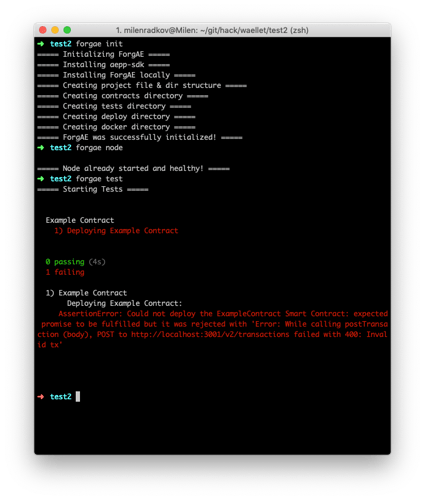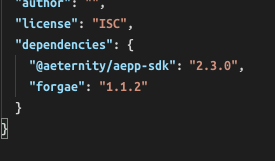Hey guys,
Please, please, I beg you ( I really do) to update your documentation, examples, tutorials and everything that the developers need in order to develop on the Aeternity Blockchain Network.
Also, please when there is a major release that breaks everything, give a simple example for stupid people like me, so we can easily migrate our code, so we don’t have to actually go and see all your 6436347 commits so we can get an idea what is changed and what not.
The first place every developer goes - or the second (the first being documentation, which is either missing or outdated or incomplete) is the tutorials.
So after I had to write some Sophia tests for my smart contract using our favourite and “I-can-do-everything-for-you” tool forgAE and I had to deploy a contract with init params where do you think I went first?
Well of course tutorials/deploy-with-init-params.md at master · aeternity/tutorials · GitHub
Did it work? Well of course not. At least you can either delete it or write down with huge font size that it is out-dated.
After going through 34757868 examples I had to actually go and see the god damn source of the JS-SDK so I can find out that the init params are now passed as an array…
So, after successfully deploying the contract on the test network, I was hit by several errors that speaks nothing to me. Can you please be so kind (hopefully as kind as I was) to help me resolve my issue?
The issue is:
I’m trying to deploy a smart contract inside the unit tests with 3 params - (address, int, int).
Going through all possible scenarios of different format I always end up with an error (and it’s always different).
Using the same method I used to deploy the contract using forgae deploy I get the following error:
Error: Http request for https://compiler.aepps.com/encode-calldata failed with status code 403. Status: Forbidden.
Error data: {"reason":"Type errors\nUnbound variable ak_2mwRmUeYmfuW93ti9HMSUJzCk1EYcQEfikVSzgo6k2VghsWhgU at line 420, column 28\n"}
If you need more details (I assume you would need the whole source code of course) just let me know.
P.S. peace


